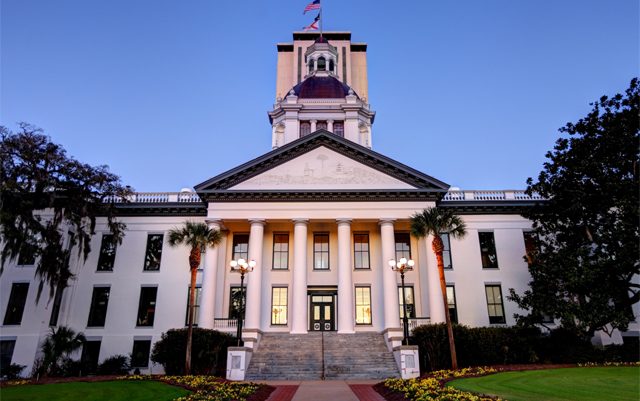Floridians have waited a long time for medical marijuana access, and thousands of patients and compassionate voters passed Amendment 2 in November with an overwhelming majority of 70 percent. But now lawmakers are attempting to severely restrict the law we chose. There have been multiple bills introduced over the past few weeks that range from loose regulations to unnecessary restrictions – and that’s not including the proposal created by the state Department of Health.
Previous bills attempted to continue the 7 distributor model that Florida currently has – which was only meant to cover a few thousand patients and high-CBD cannabis products – only allowing it to expand once the number of registered patients reaches a certain number. Department of Health regulations are similar, but would also give the power to decide if a patient should be able to use medical marijuana to the Board of Medicine, instead of their physician.
Now, a House bill introduced would go as far as to ban smoking and vaping of medical cannabis, as well as banning cannabis-infused edibles. These are all things that patients had expected to have access to under Amendment 2 – and lawmakers are looking to remove these options, leaving only topical cannabis like sprays and salves, and cannabis oil and capsules and similar products, which might not be ideal for all patients.
“To me the House bill has been such a disappointment,” said Ben Pollara, who leads the group that got the amendment on the ballot and campaigned to get it approved.
Making such restrictions is likely to make the cost of producing medical marijuana products higher than if they were to allow smoking, vaping and edibles – and since some patients need the more immediate effects of smoking or vaping it will leave some patients with fewer options to medicate with. This, plus the lack of competition among retailers, will allow businesses to keep their prices high in order to make up for the costs of production, making it an out-of-reach option financially for many who would have otherwise benefited.
“They have created a monopoly in the state with seven entities controlling the entire market,” Minardi told the Florida Record. “This prevents competition in the marketplace, which results in lower-quality products, higher prices and less availability, and there is no real choice for patients for products. They also do their own testing and quality control, providing no guarantees patients are getting safe, quality medication.”
The way it looks right now, Florida is setting themselves up for failure and the need to rework the entire program, or patients who need to medicate outside these means would have to turn back to the black market or suffer needlessly. Luckily, the Amendment does allow for a lawsuit against the state if the law is not being implemented on-time (with patient ID cards starting to go out by September), or otherwise not providing the access it promised patients – and from the sounds of it some are already preparing to file such a suit.
Maybe that will be enough motivation for Florida’s lawmakers to stop thinking about keeping cannabis out of the hands of the people, remembering that this is a medicine and we voted on Amendment 2 expecting a certain amount of access to that medicine.
Voters asked for medical marijuana and the lawmakers are doing everything they can to keep the program as restrictive as possible – luckily these bills are all still in the earlier stages and have yet to see a vote. Hopefully the majority of lawmakers will see that these regulations would be far too strict, unnecessary and a direct violation of the will of the voters.






